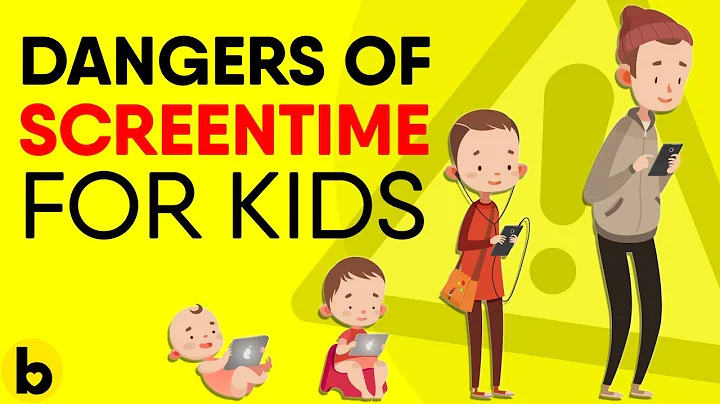
Why do children forget to eat and sleep while playing games, but get bored and resist when talking about studying? Many parents think that their children are playful and do not seek to make progress. In fact, there is a huge misunderstanding in this.
100 years ago, a psychologist discovered the contradictory characteristics of human nature that pursue "completion" but seek "benefits" and avoid "harms". Understand this principle, and you may have a subversive reflection on your children's attitude towards learning and playing.
Author: Li Zheng’s mother, senior children’s emotional intelligence management guidance consultant of the Ministry of Human Resources and Social Security, and children’s reading promoter of the Library Society of China. If you like Blue Oak’s articles, please remember to “set us as a star”!
........................................
Electronic products are magical things. A 3-year-old child can't stop watching cartoons; a 13-year-old child can't stop playing on his mobile phone; a 33-year-old adult can't stop watching videos.
But if you switch to reading, doing homework, and completing work. The ending may be: read a book for a while and then slip away; do homework for a while and then wander off; finish the work halfway and then check the mobile phone.

Why are the results so different?
In fact, the psychology community has long discovered that there is a phenomenon called the "Zaigoni effect", which affects people's attitudes towards games and learning.
The scientific explanation of "What you can't get is always in commotion"
What exactly is the "Zaigoni Effect"?
Someone gave a vivid example: Please try to draw a circle, leaving a small gap at the end. Now look at it again. Are you inclined to complete the circle?
This kind of "desire for completion" is like playing games all night long, unwilling to quit until the end is completed; chasing TV series with dark circles under the eyes, wanting to catch up to the finale; watching Douyin videos, and can't stop once they are done. I always feel that there is more exciting content later, which should not be missed... The
events are different, but the psychology is the same.
It’s not about how fun the games are, how exciting the TV series is, or how funny the short videos are, but that in human nature, there is a strong obsession with “getting things done”.

In the 1920s, German psychologist Zeigarnik observed this interesting phenomenon.
He found that the waiters in the cafe could almost write down the customer's order quickly and thoroughly without using paper and pen, but after they placed the order, they could not remember the contents of the order.
So, Zeigornik invited a group of people to conduct an experiment:
The subjects were asked to do 22 simple things, such as writing a favorite poem, counting down from 55 to 17, stringing beads with thread, etc. The time required to complete each task was roughly equal, but only half of the tasks were allowed to be completed, and the other half were interrupted before the subject completed them.
After the experiment, when the subjects were unprepared, Caigoni asked them to immediately recall what they had done.
The results found: People’s recall rate for unfinished work is 68%; for completed work, the recall rate is only 43%. This is the famous Zeigarnike effect in psychology.
People are born with a consistent concept of doing things. When their wishes are not fulfilled, the "complete" psychological needs will impress people.
To explain, people will be resentful about things they “don’t get”. If an event is incomplete, it leaves a lasting impression and is eager to be resolved. But for things that have been completed or are simple and easy to obtain, they don't pay attention to them and just turn around and forget about them.
This typical mentality of "there is always turmoil when you don't get it" is quite common in life.

The TV series that has not yet concluded, the dress that cannot be bought, the first love that is missed, the reason why people can never forget it is precisely because of this "lack that cannot be obtained".
So what we often hear about "finish this game", "finish this episode", "finish this game", "finish this", are actually not excuses, but the obsession with "completeness".
The two sides of the "Caigoni effect":
One side persists, while the other side gives up.
Some parents will be confused. Since this pursuit of "completion" is innate, why can children forget to sleep and eat for unfinished games? But why are you always procrastinating and resisting the pile of homework?
This is precisely because the "Zaigoni effect" has two sides: 1. Desire for perfection; 2. Desire to give up.
- "Desire for perfection" is manifested in: the driving force that has a beginning and an end, which makes you willing to work harder to solve something that is more than half completed.
- "The desire to give up" is manifested in this: If things have just started and the later progress seems long and difficult, you will just want to lie down.
are like two sides of a coin, one is to persevere to the end, and the other is to surrender. In life, it is often easy to show two extremes:
- The effect is too strong: perfectionism & obsessive-compulsive disorder
- The effect is too weak: giving up halfway & procrastination

If we interpret these two scenarios and put them into games VS. learning, we can suddenly understand why games are addictive and learning is boring.
1. The "reward feedback" brought by entertainment strengthens the effect.
Game companies spend more money on studying customer psychology than on game design. The wonderful and thrilling links, one after another, firmly capture the children's curiosity and drive them to want to play the next level after one level is over.
They cleverly utilize three progressive dimensions: task system; reward; progress bar.
These three dimensions are in line with the "intermittent reinforcement experiment" proposed by psychologist Skinner : The more random the reward, the stronger the addiction.

Compared with the sporadic appreciation from parents to their children, the reward feedback in games is never stingy.
When the challenge is successful, the words "You are great, try again" and "Get super gold medal/equipment" will pop up. If the challenge fails, it will never hit you, but will continue to cheer you up and let you keep up the "Just one short step". Dot, do it again."
This kind of unconditional trust can easily stimulate the "medial forebrain bundle pleasure circuit" in the brain, allowing children to always be immersed in the urge to "go forward bravely" and unable to extricate themselves.
What's more, during the game, how many cards can be collected to transform, how many levels can be passed to change equipment, and the excitement brought by the progress bar level by level, the "Caigoni effect" is everywhere.

Netflix documentary "Surveillance Capitalism: The Smart Trap" reveals social media's efforts to lure you into a trap.
Although short videos and cartoons seem to be simple viewing screens, they actually also draw on this reward mechanism. “5 minutes of short video, 1 hour of Internet, and half of the world” – this sentence vividly describes the immersive magic of short video.
The ups and downs of the plot, the eye-catching text and images, and the anticipation for the next video content will all make people have a desire to "predict the details" and keep swiping the screen. Indulging in this process of temporary spiritual satisfaction can obtain a reward of intermittent reinforcement of perception, as well as a full-hearted heart flow . It is not difficult to understand the addiction to "swishing, swishing, swiping".

The progressive intermittent reinforcement rewards make people willing to devote themselves physically and mentally; and the full concentration makes people enjoy the activity. With the combination of powerful forces, the "Zaigoni effect" becomes stronger and stronger, making people unable to stop.
Therefore, it is not that children are addicted to electronic products, but that electronic products have their own addiction mechanisms.

2. The "negative pressure" brought by learning weakens the effect.
Games can bring a sense of pleasure, satisfaction, and accomplishment; learning always feels rushed, pressured, anxious, and frustrating. Games and learning bring completely opposite feelings to children. So, when it comes to children's attitude towards games and learning, it is natural that one of them is eager to play and the other is shunned.

When we do something that is too difficult or feels bad, psychological resistance will make us afraid of action. This subconscious avoidance will gradually evolve into procrastination.
is anxious in escaping, procrastinating in anxiety, and fighting in procrastination. The ensuing urging, blaming, and denial from parents have increased the "negative pressure" of learning day by day, and the "Zaigoni Effect" has become increasingly less effective in academic performance.
When the Zeigoni effect is too weak, people will go to the other extreme:
Loss of motivation, habitual procrastination, lack of motivation and execution, often giving up halfway, goals constantly shifting, so that one thing can never be completed from beginning to end.

Procrastination may appear to be "lazy" on the surface, but its essence is resistance brought about by "fear".
Carpe diem VS. Delayed gratification
Do the opposite and let the results be as you wish
Someone once did such a questionnaire - if you win the lottery, there are two ways to cash out:
- 1 years later, take away 10,000 Euro
- 1 years and 1 month later, withdraw 11,000 euros
Most people will choose the second option, because no bank will have a monthly interest rate as high as 10%.
But if the time of the redemption method is adjusted:
- Withdraw 10,000 euros today
- Withdraw 11,000 euros a month later
As a result, most people chose the first option and got 10,000 euros today.
At first glance, this does not conform to the choice that the brain would make after rational analysis. Why is this?
It is precisely because when people make choices, "The closer a decision is to the present, the more emotional interest it will have." The explanation is that because we will be attracted by the temptation of "immediate reward" and blind our eyes, ignoring the greater long-term profits.
Researchers said that when people experience short-term temptation, they will reduce their desire for long-term rewards. This phenomenon is called "Hyperbolic Discounting".

This is like the rational part of the brain reminding you that staying up late is bad for your health, but the videos and TV series in front of you can always successfully attract you, allowing the short-term temptation to overcome the rationality of the brain.
Carpe diem, consider the pros and cons later. This thinking model can well explain why children can still be attracted to cartoons on the TV when homework piles up. "Watch an episode first", "play a game first", "play with toys first" can always defeat the thought of "finish the homework first".
It’s not that children lack reason, it’s just that external “short-term rewards” will distort the brain’s value perception of “long-term benefits”.
Preschoolers and teenagers are generally less able to resist temptation because their prefrontal cortex begins to grow at the age of 2 and does not mature until the age of 25. Adults who have been told to lose weight countless times, don’t they find it difficult to resist delicious food?
So, how to reverse the temptation of learning and gaming? First of all, what we have to do is to improve children’s “sense of gain” when facing learning.
1. Enhance goal driving force
Children do not hate learning, but the visible "benefits" of learning come too slowly.
Tell primary school children about the beauty of college, but they don’t understand. When you talk to junior high school students about their right to choose in life, they have no idea. Children are not interested in the cake you draw for learning.
Therefore, the best way is to set goals with your children, and then break them down into small goals in stages, so that the "big pie" can be seen and eaten.
Set big goals ➡️ List the results of "achievement/unachievability" of the goals ➡️ Break down the goals ➡️ Refine small goals into executable daily actions ➡️ Formulate rewards for achieving stage goals

Break down big goals into small goals, goals Only by allowing children to reduce "negative pressure", reduce their fear of learning, and see the possibility of achieving their goals can they generate internal goal drive.
At the same time, small goals that are easy to achieve can bring a sense of "short-term reward" experience, making it easier for children to feel motivated and stimulating the "Zaigoni effect" during learning.
2. Visualize the goal
Simply talking on paper is not enough. Children need visible and tangible "positive feedback".
Therefore, we can accompany our children to transform goals into specific images, such as making a daily schedule and ticking each item when completed. Posting it in an area where the child can see it every day not only reminds the child, but also allows him to see his record of achieving small steps every day.
Only with feedback can we be motivated.

Don’t forget to add some sugar to your studies from time to time. Accompany the child to summarize the day every day, and focus on praising the child for the projects they have completed that day. There is a summary every week and a summary every month, just like clearing levels in a game, allowing children to see the progress in stages and the fun of constantly "killing monsters, clearing levels and upgrading".
To defeat procrastination, the most important thing is to increase the sense of accomplishment brought by learning. Then children can feel that they have the initiative in their studies, and they will be more willing to do it.
3. Let the game have fun and make learning rare.
Play the game as much as possible, and the Zeigoni effect will be weakened.
If you urge your child to study while he is playing games, even if he obeys the order and studies, he will still be worried about the unfinished game. If the desire for completion brought about by the "Caigoni effect" is not satisfied, the child will be unable to concentrate on learning, and may even be full of resentment towards you, make a lot of noise, and make a fuss.

Therefore, every time you make an appointment with your child about how long to play a game, don't say "I will play for you for 20 minutes", but "I will play for you for one game." has a beginning and an end, so you can have fun and have no worries. Then the child's obsession with games will be reduced, and his resistance to learning will be alleviated.
helps children reduce their obsession with "what they can't get will always cause turmoil", and completely end "a game", "an episode of cartoons", and "a rest and entertainment", which will be better than the "only 20 minutes" rule. Better implementation.
On the contrary, treat learning with a high attitude, delay gratification, and create happiness.
For example, if you focus on reading for one hour every day, you will "sustain" it if you read too many books. It is better to divide it into time periods and watch it three times a day, no longer than half an hour each time, to create a sense of distance and freshness.
Every time the reading time ends when the child is about to finish reading a book, the suspense left will make the child still unfinished and looking forward to the next reading.
The same applies when doing homework. Every time you observe that your child is a little tired, take a break and have some fun. At the end of each study, praise him for the tasks he completed that day, and look at today's learning results together.
Then, learning will become easy and have something to look forward to.
Games are not the enemy of learning, and learning is not a painful practice as an ascetic.
As long as the method is used properly, you can have fun playing games and learn vigorously.






















